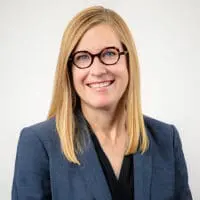Publication
Opening the Door to Alternatives: What Fiduciaries Should Know About the New 401(k) Executive Order
By Anne Meyer
On August 7, 2025, President Trump signed an Executive Order titled Democratizing Access to Alternative Assets for 401(k) Investors. The directive marks a significant policy shift by encouraging regulators to make it easier for defined contribution plans, such as 401(k)s, to include asset classes historically reserved for institutional investors. Traditionally, 401(k) participants have invested only in publicly traded stocks and bonds, while wealthy individuals, pension funds, and endowments have accessed private equity, private credit, real estate, infrastructure projects, and commodities. The Executive Order directs the Department of Labor (DOL), the Securities and Exchange Commission (SEC), and the Treasury Department to revisit prior guidance, propose new fiduciary safe harbors, and clarify rules that have discouraged plan sponsors from adding alternatives to participant menus because of litigation risk.
For plan fiduciaries, however, the Executive Order does not immediately change the legal framework under ERISA. Fiduciary duties under ERISA remain the same: fiduciaries must act prudently, and courts will continue to measure prudence by process rather than investment outcomes, as reaffirmed by recent cases. Alternative assets bring distinct challenges including illiquidity, complex fee structures, valuation difficulties, and the risk of participant dissatisfaction if returns fall short. If regulators ultimately allow broader adoption, fiduciaries will need to update their investment policy statements, strengthen due diligence, and provide participants with meaningful education on both the opportunities and risks of these alternative investments.
The retirement landscape may be shifting. With roughly $12.5 trillion in 401(k) assets, asset managers see a significant opportunity to expand access, and regulators seem to be open to revisiting long-standing barriers to these investments. This shift is further underscored by the Department of Labor’s recent reversal of its prior “extreme care” warning on cryptocurrency investments, as discussed in our earlier blog.
*Any opinions expressed are those of the author, and not necessarily those of the firm or her colleagues.
About Snell & Wilmer
Founded in 1938, Snell & Wilmer is a full-service business law firm with more than 500 attorneys practicing in 17 locations throughout the United States and in Mexico, including Phoenix and Tucson, Arizona; Los Angeles, Orange County, Palo Alto and San Diego, California; Denver, Colorado; Washington, D.C.; Boise, Idaho; Las Vegas and Reno-Tahoe, Nevada; Albuquerque, New Mexico; Portland, Oregon; Dallas, Texas; Salt Lake City, Utah; Seattle, Washington; and Los Cabos, Mexico. The firm represents clients ranging from large, publicly traded corporations to small businesses, individuals and entrepreneurs. For more information, visit swlaw.com.

